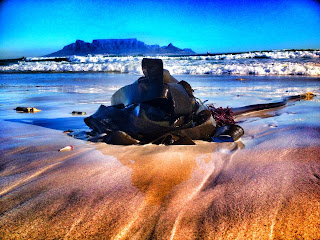Officially known as the Republic of South Africa, South
Africa has a colourful history. South Africa is separated into 9 provinces –
The Eastern Cape, Free State, Gauteng, Kwazulu Natal, Limpopo, Mpumalanga, North
West, Northern Cape & the Western Cape. South Africa borders Namibia, Botswana,
Zimbabwe & Swaziland. Lesotho lies completely surrounded by South Africa.
South Africa boasts one of the most multi-cultural
populations on the planet. Eleven official languages are recognised within the
country but many more are spoken. Over the last two decades cities and towns in
South Africa have seen a huge surge in wealth and development.
With the rise in liquid assets and free time South Africa
has also witnessed a dramatic rise in drug use and addiction. The alarming trend
in South Africa of addiction is actually double per head compared to most other
countries in the world. Street drugs in South Africa have also contributed to
the epidemic. Previously South Africa was plagued by drugs as a result of being
a great shipping route for smugglers from South America looking to move illicit
substances to Europe through Africa. Now new street drugs are manufactured in home
laboratories by amateur chemists, drugs such as Nyaope are an example of unique
cheap street drugs in South Africa. Nyaope a mix of Cannabis (dagga), Heroin
and other chemicals has plagued large areas of Northern South Africa. Reports
suggest that as many as 80% of households in certain areas are directly
affected by Nyaope addiction. It has also been reported that Nyaope has been
sold merely as Cannabis to youth who then quicklty become addicted. Admission
rates for under 16s to rehabilitation facilities for drug addiction has risen
quickly over the last 5 years. Some
schools in South Africa are actually screening students for drug use with
random testing.

Crystal Meth (tik) is another huge concern for the country
that only 3 years ago hosted the football World Cup. Crystal Meth like Nyaope
is also produced in home-made laboratories. Manufacturers are increasingly switching
the ingredients to more toxic chemicals in order to make the process of
production cheaper and the profits greater. Crystal Meth has caused devastation
in the United States and it looks like the trend is having the same effects on
South Africa. In 2009 half of all admission to drug and alcohol addiction
treatments centres in the Western Cape were for Crystal Meth (tik) addiction.
Crystal Meth prices vary but it is generally available for the same price of a
packet of cigarettes. With prices at rock bottom and availability on the rise
it is little surprise the problem is growing.
Crystal Meth leads us on to another drug that is almost
unique to South Africa, Mandrax. Mandrax was initially used as muscle relaxant
in the United States. It is now believed to be produced in home laboratories in
South Africa. South Africa is by far the biggest user in the world of Mandrax.
Mandrax is normally mixed with Cannabis (dagga) and smoked through a pipe.
Often it is used to “bring down” the user from Crystal Meth.
Along with drugs South Africa also has some of the highest
alcohol dependence rates in the world. South Africa has very strict licensing
rules across its cities in relation to the sale of alcohol. The very latest
bottle stores close at 9pm. These measures seem to have had mixed effects
across South Africa with certain provinces seeing a decrease in the number of
alcohol related admissions to rehab clinics and others seeing increases.
Kwazulu Natal for example has seen a drop in alcohol related admission to
addiction treatment centres but has seen a rise in Crystal Meth admissions. To
me it seems to be six of one and half a dozen of the other. Whatever way you
look at it addiction in South Africa is a problem, a very big problem.
With all the addiction South Africa has responded and now
boasts some of the best addiction treatment centres across the world. People
travel from all over the world for addiction treatment in South Africa. Price
is a big factor for these people to travel for treatment in South Africa as it
is typically allot
cheaper than Rehab clinics in the Western World. Also the
actual success rates of sustained abstinence from addiction after treatment in
South Africa are allot higher than that of anywhere in the world besides the United
States.

It also seems that medical insurance (medical aid) providers
have realised that they can actually save money in the long run by sending
there policy holders to rehab centres. Most providers now offer rehab within their
plans. This no doubt saves them money in the long run by preventing numerous
hospital admissions related to addiction. This also helps the health services
in South Africa greatly. The strain addiction puts on a health service is
dramatic and can prevent so many people receiving the treatment they need. The
reality is rehabilitation is the answer to this problem as is education and a harder
stance on illicit drug manufacturing.
Addiction does not just affect the addict. It is estimated
every addicted person can impact on as many as 18 other lives. Relatives
obviously suffer tremendously watching a loved one suffer from addiction but so
does society. Crime rates in South Africa have risen in line with the rise in
drug addiction. The Western Cape is often described as the drug province of
South Africa. Statistics indicate that 48% of all drug related crimes were committed
in the Western Cape.
The question really lies now with what authorities are going
to do to try and stop the spread of these new street drugs. Nyaope is probably
the scariest substance spreading across South Africa at the moment. Alarming amounts
of children are already dependent on Nyaope and need treatment in rehab
facilities. Will drug and alcohol destroy another beautiful country right
before our eyes? I guess we will just have to wait and see.





